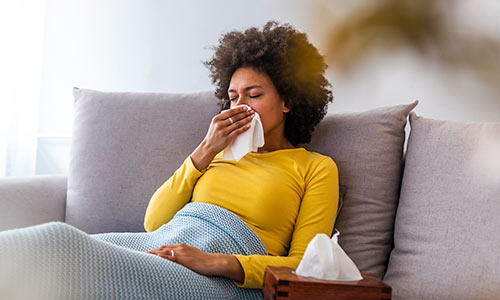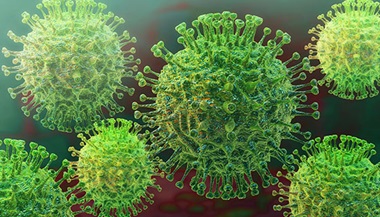Coronavirus and Pregnancy: What You Should Know
Reviewed By:
Pregnancy can be a time of joyous anticipation and excitement for women and their families. But the coronavirus pandemic raises concerns. Are you and your baby at risk?
By following doctors’ advice and taking some extra precautions, you can enjoy a healthy, happy pregnancy while protecting yourself and your unborn child from the effects of COVID-19.
Jeanne Sheffield, M.D., an expert in maternal-fetal medicine at Johns Hopkins, explains what pregnant women should know about the impact of the coronavirus and COVID-19 on pregnancy. She provides perspective on current research data concerning pregnant women who have had COVID-19, and offers suggestions on what you can do to stay safer.
Avoiding the Coronavirus During Pregnancy
Avoiding infection with the coronavirus is a top priority for pregnant women. Sheffield explains why: “Pregnant women can experience changes to their immune systems that can make them more vulnerable to respiratory viruses,” she says. “These changes mean that expectant mothers should be proactive when it comes to safety measures.
“If you’re pregnant, you should take precautions to protect yourself from getting COVID-19. Do everything you can, including physical distancing, wearing a mask, hand-washing and staying in close communication with your provider.”
She says many practitioners are scheduling less frequent appointments to help pregnant patients limit trips to the doctor’s office. Other obstetricians are ramping up telemedicine processes so they can continue to monitor pregnant patients without an in-person visit. Ask your obstetrician about these options.
Should pregnant women get a coronavirus test? If you are having COVID-19 symptoms or think you have been exposed to an infected person, call your doctor and follow his or her advice. Adhere to precautions carefully: Stay at least 6 feet from others, wear a mask, and avoid large gatherings and indoor socializing outside of your household.
Sheffield says, “Ideally, all pregnant women should be screened for COVID-19 when they are admitted to deliver their babies, but especially mothers with cough, fever or any respiratory symptoms.”
Now that the first COVID-19 vaccines have been authorized by the U.S. Food and Drug Administration, vaccination has begun across the country. Here’s more about the COVID-19 vaccine and pregnancy.
Finally, pregnant women should be vaccinated against influenza (the flu). Pregnant women who get the flu can get very sick, and having a high fever raises the risk of harm to your baby.

Pregnancy and COVID-19: Elsa’s Story
Elsa Lisseth Reyes-Amaya was pregnant when she was hospitalized for a serious case of COVID-19. Multiple departments across Johns Hopkins Medicine worked together to treat her and monitor her pregnancy. Four months later, Elsa safely delivered her daughter, Sofia.
COVID-19’s Impact on Pregnant Women
Women who have COVID-19 symptoms while pregnant should notify their doctors immediately. If you are tested for the coronavirus and it turns out you have it, do not panic.
“We can provide treatment for COVID-19 in pregnancy,” Sheffield says. “Several of the medications currently in use are also being used for our pregnant women, and early studies have shown they can provide some benefit.”
The American College of Obstetricians and Gynecologists and the Society of Maternal-Fetal Medicine have worked with national and international leaders on recommendations for doctors working with pregnant women who might have COVID-19 or who have been diagnosed with the illness. These recommendations are based on data from the first few months of the coronavirus pandemic, and are being updated as more is learned about the virus.
In a Sept. 25, 2020, report from the U.S. Centers for Disease Control and Prevention, researchers reported birth outcomes of 598 pregnant women with confirmed COVID-19.
Pregnant women with COVID-19 were found to be more likely to be hospitalized and require ICU admission than non-pregnant women. Fifty-five percent of the hospitalized patients had no COVID-19 symptoms (asymptomatic). One-fifth of the hospitalized women had underlying medical conditions. There was a 2% pregnancy loss rate, and a small increase in preterm deliveries.
“There is still limited information about whether COVID-19 in particular is associated with pregnancy loss, miscarriage or stillbirth,” she says. “But we do know that high fevers in pregnancy, especially in the first trimester, can raise the risk of birth defects. That is why we encourage our patients to protect themselves from any illness that causes fever, including the flu.”
Hospital Visitors During the Coronavirus Pandemic
Sheffield says there’s one more very important item for pregnant women to remember: Many hospitals are changing their visitor policies to control the spread of the coronavirus.
For instance, The Johns Hopkins Hospital strictly limits labor and delivery visitors to one. That means a patient can designate only one person to accompany her through the birth process: a partner, a family member or a doula. The hospital’s ambulatory birth center is not allowing any visitors at all while the pandemic continues. These guidelines are adjusted depending on the community prevalence of COVID-19.
Such policies can be hard on families, dashing plans and expectations for a joyous birth shared among loved ones. But, says Sheffield, these limits are essential to protecting patients, their babies, other patients and hospital staff.
“People have been gracious and understanding,” she says. “We appreciate everyone’s cooperation in these extraordinary times.”






